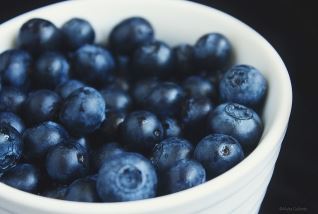- October 15, 2015
- in Green Tips
- by marcos
- 842
- 0

Deciding what to eat is usually based on what foods you’re feeling hungry for. But have you considered what foods might be best for your brain?
Did you know that your brain makes up about two percent of your body weight and that it uses about 20 percent of the oxygen in your blood and 25 percent of your blood sugars? That’s a lot of energy!
Yet, most of the time we eat to fill our stomachs and we forget that we need to power up our brains, too.
Not to worry. Certain “brain foods” can help nourish this precious organ by protecting it from degeneration, helping to boost mood, and sustaining cognitive function, even as we age.
Here are some of the top brain foods and what research says about them.
1. Beet Juice
Beets are a great source of naturally occurring nitrates, helping improve both blood flow and cardiovascular health. New research has found that beet juice helps increase brain performance in healthy people. The study found that people performed better on cognitive tests just 90 minutes after drinking the juice. Also, those naturally occurring nitrates allow more oxygen to flow in the brain.
Make your own juice or try ordering it the next time you’re at a juice bar. Carrot, beet, and ginger juice is a great combination.
2. Blueberries
Steven Pratt, author of Superfoods Rx: Fourteen Foods Proven to Change Your Life, refers to blueberries as “brain berries.” Studies have found that blueberries have a protective effect on our brains, helping to prevent against age-related diseases like dementia and Alzheimer’s.
These bite-sized berries also offer tiny bits of dopamine, the neurotransmitter that regulates pleasure in our bodies. The antioxidants that give blueberries their bright blue color can help relieve stress by activating the production of dopamine in the brain.
Enjoy blueberries in smoothies in the morning or topped with cream for a delicious dessert.
3. Celery
Celery is a brain-food powerhouse.
This crunchy green is a high source of luteolin, a plant compound known to lower rates of age-related memory loss. In addition, it helps calm inflammation specifically in the brain and can help prevent degeneration. Peppers and carrots are other good vegetable sources of luteolin.
A little known celery fact is that it retains its vitamins even with heat. So while you can enjoy this snack raw with dips or nut butters, you can also fuel your brain when you add it to soups and stir-fries.
4. Coconut Oil
The brain is made of about 60 percent fat and saturated fat, in particular, is a building block for our brain cells. Low-fat diets can contribute to depression and dementia, because our brains need healthy levels of fat to thrive.
In fact, a Mayo Clinic study found that people who ate more saturated fat had a 36 percent decreased risk of developing dementia.
A great vegan source of saturated fat is coconut oil. You can use it as a replacement for butter in baking or sautéing.
5. Dark Chocolate
This brain food may be one you already indulge in. But here’s a reason to feel even better about eating it: High-quality dark chocolate–the kind with very little sugar and additives–offers significant brain benefits.
The flavonols found in dark chocolate help improve vessel function throughout the body, which makes it easier for blood to flow to the brain. This improves our memory and overall brain function. Plus, theobromine, a phytochemical present in cocoa, can put us in a good mood and help us feel more alert and focused.
One study found that people who drank about 1.5 ounces of dark chocolate a day felt calmer than those who didn’t.
Whether you eat or drink your chocolate, look for a variety that’s at least 70 percent cocoa for the biggest brain health benefits.
Explore more in the category of Health and Healing.
© 2015 Omega Institute for Holistic Studies, Inc. All rights reserved.
— This feed and its contents are the property of The Huffington Post, and use is subject to our terms. It may be used for personal consumption, but may not be distributed on a website.


